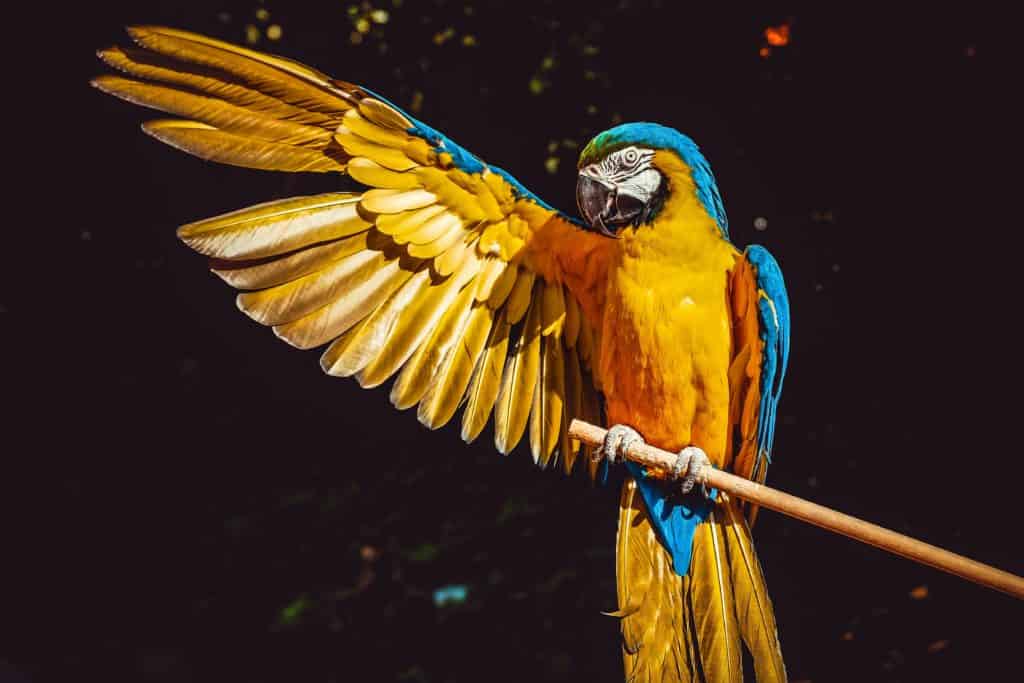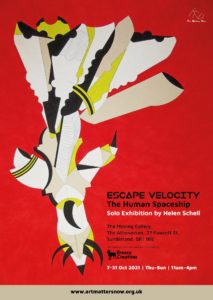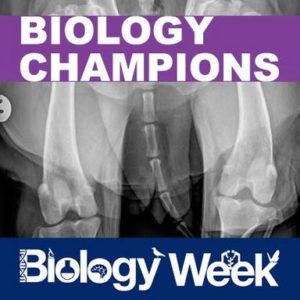Call free on: 0800 389 2839
Call free on: 0800 389 2839
Join in... The latest news and blogs from NEC
The STEM home educator’s guide to navigating Biology Week and World Space Week Saturday, 02 October 2021

STEM educational weeks are only marginally better than buses: you wait for one and then suddenly it’s both Biology Week and World Space Week jostling for space in a seven-day overlap.
If you’re anxiously scratching your head and wondering how best to combine these two extracurricular programmes in your child’s busy homeschooling timetable, you’ve come to the right place. Welcome to NEC’s guide to navigating Biology Week and World Space Week as a home educator. Keep reading for links to further events and resources.
Who says it’s Biology Week and World Space Week?
Two excellent organisations! Biology Week (2–10 October) is run by the Royal Society of Biology with the aim of showcasing the work of bioscientists. World Space Week (4–10 October) is, as the name suggests, a global event, dreamed up by the United Nations to celebrate the role of space science and technology in “the betterment of the human condition” (UN General Assembly resolution, December 1999).
Are these weeks suitable for teens?
Definitely. Whether your child is preparing to sit their GCSEs or A levels, there are huge benefits to be had in engaging with STEM-themed weeks. Finding a way to integrate Biology Week and World Space Week into your timetable will help your home education maintain a sense of dynamism and real-life application. Plus, if you’re thinking about putting together a personal statement to apply for college or university, it’s good to have a good list of “super-curricular” activities for your teen to demonstrate their interest in their subject above and beyond what might be expected from day-to-day lessons.
It’s also worth noting that the theme for World Space Week this year is Women in Space, so this is a chance to plug any knowledge gaps about the astronauts and engineers of past and present who have got us where we are today.
So what’s out there?

One event you might want to consider is Moon Talks, a free online lecture held on Tuesday, 5 October 2021 with the South Coast Centre of Excellence in Satellite Applications, hosted by the University of Portsmouth. Speakers will be covering topics ranging from moon colonisation to moon rock analysis, as well as the exciting question of robots on the moon.
Another idea for those based in the North and looked to get out and about is Escape Velocity – The Human Spaceship. This is a thrilling in-person art exhibition from Helen Schell, themed around space exploration and the 1960s movement ‘Op Art’. It will be running from 7–31 October and you’ll need to get to Sunderland for it, but art can be a great way of broadening your teen’s horizons and offering a new perspective on STEM that highlights its creativity.
If you’re looking to cover the Women in Space theme, the British Interplanetary Society is running a Space Industry Leadership Panel featuring four women in space on 9 October at 3.30 pm. The panellists will be sharing their career stories and offering useful insights into the UK space sector.

On the biology side of things, there’s the online event RSB Big Biology Quiz on 5 October at 7.30 pm, specifically designed to offer family-friendly questions of varying difficulty. For something more ambitious, try the Policy Lates – Rethinking our food system panel discussion at 6.30 pm on 4 October.
Finally, your teen has the option of supercharging their personal statement by attending Biology Champions, a free, six-week online course run by the Royal Veterinary College on Tuesday evenings from 5 October onwards. The programme is incredibly comprehensive and features input from the Zoological Society of London, the Biochemical Society and the Royal College of Pathologists – and it comes with a certificate of completion for attending all six sessions. The course is specifically designed for year 12s (first year of A level study) but anyone aged 14–18 is welcome to join.
How do I keep up the momentum once these STEM weeks are over?
There are so many ways to keep your teen engaged in their STEM home education. Home educators will be pleased to note that the Biochemical Society offers free teaching resources on its website designed to get young learners talking about some of the more controversial areas of science.
If World Space Week goes down well in your family, you might consider our GCSE Astronomy course – a brilliant addition to any ambitious STEM personal statement. Or, if your GCSE student enjoyed both weeks, maybe A levels in Biology and Physics may be more in order?
I’ve got the STEM bug myself now – what can I do?
You can enrol on our distance learning qualifications yourself! Read Belinda’s story here.
Leave a Reply Cancel reply
More stories
working at NEC
Uncategorized
- Balancing an A level with My Passion for Dance
- The Future of Art History: Why Study A level History of Art with the National Extension College?
- Why Study Physics?
- Embracing a New Path: Jill’s Journey from Online Learning to Career Success in Art History
- How Toby Found a Perfect Fit for His Passion: Online A level English Literature with NEC
Study Tips
Student Stories
- Balancing an A level with My Passion for Dance
- Passion and Academics: How Izzy Balances Full-time Musical Theatre Studies with Studying A level Physics
- How NEC Helped Kari’s Son Niko to Continue his A level Studies Despite Long-Term Illness
- Embracing a New Path: Jill’s Journey from Online Learning to Career Success in Art History
- How Toby Found a Perfect Fit for His Passion: Online A level English Literature with NEC
SFT
Results Day
- Resitting A level STEM Subjects: How to Turn Your Setback into a Stepping Stone for a Brighter Future
- Resits vs. Retakes: Understanding the Difference and Making the Most of Your Second Chance
- GCSE Results Day 2024: What to Do When You Didn’t Get the GCSE Results You Wanted
- GCSE Results Day 2024: Your Complete Guide
- A level Results Day 2024: Your Ultimate Guide to Success
Policy and Campaigns
- A Pathway to Success Beyond A levels: Why Level 4 and Level 5 Qualifications Matter
- Schools and Academies Show 2024: Insights for School Leaders
- Big Data and Educational Trends: Insights for Students and Schools
- University of Cambridge Institute of Continuing Education offers tuition fee bursary for NEC A level students
- Five study bursaries for state sector teachers to take online A level Classical Civilisation offered by The Classical Association
Podcast
Our Courses
- Balancing an A level with My Passion for Dance
- How NEC’s Inclusive Approach to Learning Design is Redefining Independent Learning
- NEC’s Learning Design: A Pathway to Success for Independent Learners
- Passion and Academics: How Izzy Balances Full-time Musical Theatre Studies with Studying A level Physics
- Why Study Psychology? – Key Benefits, Careers and What You’ll Need to Study Psychology at University
Lifelong Learning
- A Pathway to Success Beyond A levels: Why Level 4 and Level 5 Qualifications Matter
- Benefits of Homeschooling: Is Home Education Right for Your Family?
- How NEC’s Inclusive Approach to Learning Design is Redefining Independent Learning
- The Future of Art History: Why Study A level History of Art with the National Extension College?
- National Coding Week 2024: The Vital Role of Coding in the Modern World
Home Schooling
- Benefits of Homeschooling: Is Home Education Right for Your Family?
- How NEC Helped Kari’s Son Niko to Continue his A level Studies Despite Long-Term Illness
- Exploring Science Practicals at Home: A Guide for Homeschoolers
- Homeschooling in 2024: How to Personalise Your Child’s Education
- What is Homeschooling?
Guest Blogs
- Passion and Academics: How Izzy Balances Full-time Musical Theatre Studies with Studying A level Physics
- My Experience as a Marketing Intern with the National Extension College
- The economics of political parties
- Embarking on a journey: My decision to ‘Fast-Track’ A level Physics with NEC
- Homeschooler Andrew’s experience of studying IGCSE Chemistry
General
- Balancing an A level with My Passion for Dance
- A Pathway to Success Beyond A levels: Why Level 4 and Level 5 Qualifications Matter
- Schools and Academies Show 2024: Insights for School Leaders
- How NEC’s Inclusive Approach to Learning Design is Redefining Independent Learning
- NEC’s Learning Design: A Pathway to Success for Independent Learners

Add a new comment
Current comments: 0